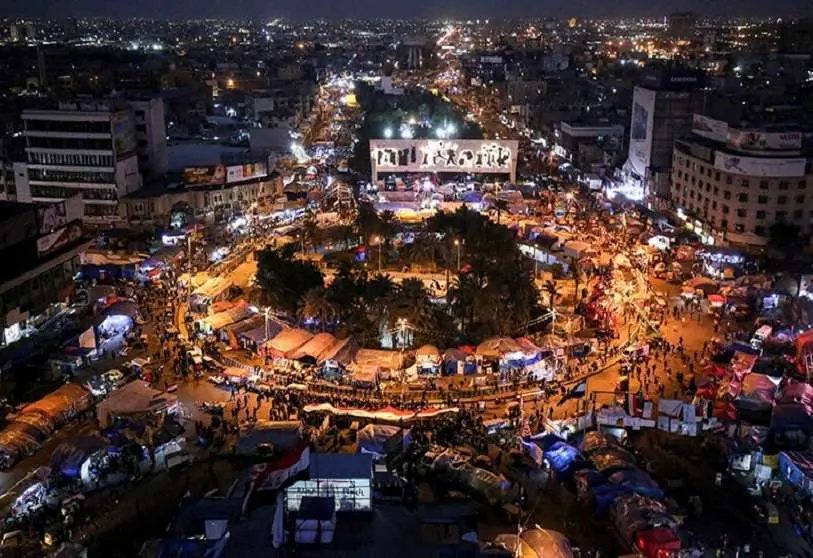Iraq faces several demonstrations after the devaluation of the dinar

Hundreds of Iraqis demonstrated in several cities on Monday against the Central Bank's decision to devalue the Iraqi dinar by almost 25 percent against the US dollar. Last weekend, the central bank set a new exchange rate for the national currency at 1,450 dinars to the dollar, as opposed to 1,190 dinars to the US dollar, due to a serious economic crisis marked by falling oil prices.
In a statement, the Central Bank of Iraq announced that this devaluation is due to the impact of the crisis arising from the pandemic and the consequent drop in the price of crude oil, which accounts for 90 percent of the Arab country's budget, and to the mismanagement of public resources "in recent decades".
Thursday's leaking of the draft 2021 budget to the press stunned officials and the general population, some of whom rushed to withdraw their savings. The draft provides for a drastic reduction in civil service bonuses and benefits, as well as a devaluation of the dinar, an exchange rate that has remained unchanged for six years.
After a year in which Iraq's GDP fell by 11 percent, the government led by Mustafa al-Kazimi believes it has no choice but to address the fall in oil prices caused, in particular, by the effects of Covid-19 on world demand. Crude oil exports have been further reduced to 2.5 million barrels per day to comply with the OPEC decisions and are expected to average $42 per barrel next year.
This will cause food prices, the vast majority of which are imported, to rise "with a disastrous effect on poor households," warned a member of the finance committee, Mohammed al Daraji. It is already estimated that a quarter of the population lives below the poverty line. It is therefore likely that Parliament, which has already rejected several of the government's reform proposals, will revoke the draft budget.
Wages are paid months late and the state can no longer fund infrastructure projects, as evidenced by frequent power cuts. Finance minister Ali Allawi revealed in September that the government was borrowing 3 billion dollars a month from the central bank. But the central bank, whose foreign currency reserves no longer exceed 50 billion dollars, cannot continue indefinitely. Overall, Baghdad finances over half its expenditure on credit and its deficit is currently around a quarter of GDP, a world record.








